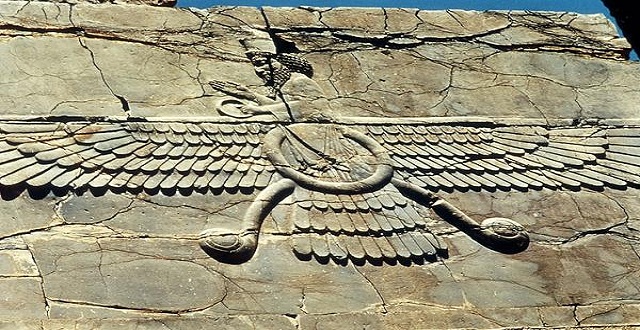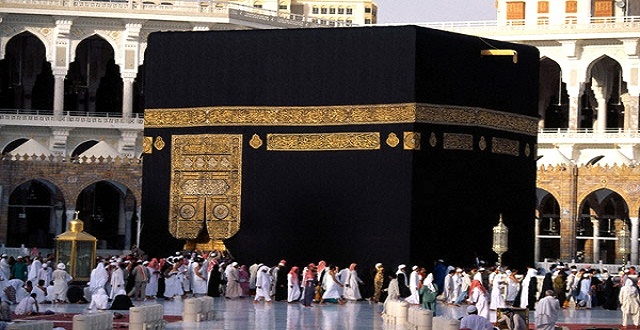
The collision of science and religion was first set forth after the Middle Ages, when modern sciences first began contradicting the portrait that the church had painted of scientific concepts and the Bible had, according to the church’s interpretation, and as a result, the church was slowly put aside in order for modern sciences to grow.[1] To solve the problem, some said that the language of religion differs from and has nothing to do with the mind and intellect and is above all of them. Individuals such as Kirkegor believe that anything discovered by the mind has nothing to do with religion and faith.[2]
The issue of the collision between religion and science which mainly belonged to Christianity and its look at religion[3], was brought into the teachings of Islam by some who didn’t take into consideration its delicacy in Islamic beliefs.
In order to answer this question, two subjects need to be spoken about; one being religious assertions, and the other being scientific discoveries.
Religious Doctrines and Assertions
Here, a few points must be noted:
1- When referring to Islamic sources (The Quran and tradition), one is required to consider the terms and conditions of a certain ruling (that might be mentioned in other texts and sources, not necessarily in the same text that the ruling has been mentioned in) and cannot be certain about a ruling being absolute and unconditional in the first look without searching for and making sure that there aren’t any context clues or anything else in religious texts that might be of help in reaching the true meaning of a statement and the conditions of a ruling.
In order for this issue to clear up further, we will give a small example from a religious text. In the Quran, honey has been named as a cure for people.[4] Now, if one perceives that honey is a cure for all sicknesses, but on the other hand science proves that it is dangerous for a certain disease, he/she will conclude that here science and religion have collided, while in reality, the Quran hasn’t claimed that honey is a cure for all diseases, all it has said is that it is a cure.
Under this verse, Fakhr Razi mentions this same question and says: “In this verse, Allah (swt) isn’t saying that honey is a cure for all people, all diseases and in any condition, but what He is saying is that in some cases, it is a cure.[5]
This point needs to be considered when dealing with religious assertions, and one mustn’t quickly conclude that an assertion is absolute and unconditional without such an observation.
2- In contrast to theories belonging to some Westerners, Islam has high respect for the mind and logical reasoning to the extent that it has coined the name “Inner Messenger” for it, and considers the worship of the wise individual higher than that of others, and of more virtue.[6]
Because of this, just like how some narrations serve as terms and conditions for other narrations, sometimes intellectual assertions also act as terms and conditions for narrative ones. This fact has been pointed to in the science of Usulul-Fiqh or the science of principles of jurisprudence. For instance, assuming their validity, it has been stated in some traditions that diseases aren’t transmitted from one person to the other.[7] Meanwhile, science has proven that some diseases are in fact transmitted.
Nevertheless, there is no collision here between science and religion. Here, these scientific laws that have been experimented and proven by science and are for sure, work as context clues, meaning that they show that this tradition is talking about diseases that aren’t transmitted, not all diseases.
Therefore, one can say that sometimes there is collision between intellectual religious reasoning and narrative religious reasoning, not between intellect and religion, because we believe that our religion is made up of both intellectual and narrative assertions.
3- Sometimes traditions express the spiritual causes of an event, not the materialistic ones. This can sometimes result in one mixing the two up and concluding that religion and science have collided in that particular issue. (Spiritual causes of an event are prior to materialistic ones, meaning that an event’s spiritual causes must first come, then the materialistic ones in order for it to take place.)
For instance, some traditions state that earthquakes are a result of our sins. On the other hand, science has proven that earthquakes occur because of a series of natural changes that take place in the earth’s crust. It is wrong to believe that these scientific assertions contradict what Islamic traditions are saying regarding the cause of earthquakes. That is because the traditions are expressing the spiritual reasons for such an incident, and that doesn’t violate the fact that in order for an earthquake to take place, it is necessary for some changes to take place in the earth’s crust. So, one must distinguish between material and spiritual causes of different phenomena.
Scientific Discoveries
Some points must be noted:
1- When dealing with scientific subjects, one must distinguish between theories and hypotheses that need proving, and scientific laws that are certain. Before it becoming a scientific law and in other words, one hundred percent proven, a scientific theory cannot be considered as one that is in conflict with any religious doctrine or assertion, because it is still only a theory or hypothesis and there are chances in the future that it will turn out to be an incorrect one. Sometimes, a theory has been proven correct in some instances, but its application in all of the instances that a certain tradition is speaking of is yet to be proven. In such cases, a tradition can’t be considered as one contradicting science. Of course, if such theories that are in contradiction are ever proven, then one needs to find a way to solve the conflict.
2- Another point which needs to be noted about science, is that in epistemology (the study of the philosophy of knowledge), some believe that scientific theories have nothing to do with the physical world and their base is rather the mind and they are merely ideas, but since they benefit us in analyzing and explaining different phenomena that take place in the physical world, they are acceptable. For instance, Darwin’s theory of evolution doesn’t say that man was really born from monkeys, all it says is that if it is assumed that this theory is correct, some of the questions we have on the life of man will be answered. This theory (that says that man can never have absolute knowledge of the physical world), which is well-known in epistemology today, is referred to as “sense perception”.[8] On this basis, some claim that there is no collision between religion and science because what religion says is the truth and actuality, while what science says is merely an idea pertaining to the mind and thought that we make use of in the physical world, being of no reality.
3- Some say that since each of religion and science have two different subjects, there is no collision between the two, because in order for two things to collide, they need to have the same subjects while each relate a rule to the subject which contradicts what the other relates. In this case, one can say that these two have collided, or else, there will no longer be any collision between the two.
Ian Barbour says that analysts usually see science as an instrument, meaning that they know scientific theories as “beneficial” rather than “realistic” and believe that what science does is help us predict and control earthly events, while religion’s main responsibility is to prescribe and legislate a way of life and to help us submit to a series of moral principles.[9]
This viewpoint has some positive points, yet its major problem is that it hasn’t taken into consideration one of the dimensions of religion, which is the fact that in addition to the above mentioned tasks, religion also sometimes expresses laws of nature. It cannot be denied that in all divine books, including the Quran, different natural events such as wind and rain have been spoken of. Therefore, emphasizing on some dimensions of religion while disregarding the others isn’t the correct way of solving the claimed paradox between science and religion. On the contrary, this problem needs to be solved between science and religion in its entirety. True, religion is for expressing one’s submission to God or is there to show us a way of life, but all it has spoken of isn’t limited to this. It has also spoken of this world in a way that sometimes gives the feeling that it is colliding with science, so we have to find an answer.[10]
In the end, one point that needs to be pointed to is that not only isn’t the Quran in collision with science, but scientific miracles can also be found in it. What is meant is that the Quran has pointed to different scientific subjects and facts that science has recently discovered after centuries. For instance, in the 125th verse of surah Ma’idah, concerning those who have gone astray, it has been stated that they are like the one who ascends into the sky and reaches the top layers of the atmosphere and as a result, can no longer breathe correctly and begins to feel pressure on the chest, while till a few centuries ago, scientists believed that air has no weight and pressure. It was in the year 1643 that Evengelisgta Toricelli invented the barometer and discovered atmospheric pressure. So today, after centuries and the scientific discovery of atmospheric pressure on earth and that this pressure corresponds with man’s blood pressure while changing as he goes up into the atmosphere, it has eventually cleared up what is meant by the verse.[11]
Conclusion: Considering what was said till now and the development of science and technology, one can conclude that the certain and concrete assertions of Islam in no way collide with scientific laws which have been proven to be for sure; these scientific phenomena are Allah’s proof and signs that have no conflict with what the Quran or the infallibles have asserted.[12]
————————————————————————————
[1] Hadavi Tehrani, Mabaniye Kalamiye Ejtehad (The theological principles of jurisprudence), pg. 313.
[2] Ibid, pg. 315.
[3] Ibid, pg. 315.
[4] “شفاء للناس” Nahl:69
[5] Tafsir Kabir, under the relevant verse, Safinatul-Bihar, vol. 3, pg.483.
[6] Safinatul-Bihar, vol. 3, pg. 541.
[7] Ali Akbar Ghaffari, Talkhis Miqbasul-Hidayah, pg. 48.
[8] Muhsin Javadi and Alireza Amini, Ma’arefe Eslami (Islamic teachings), vol. 2, pg. 40.
[9] Ian Barbour, Science and Religion, pg. 153-155, quoted by Ma’arefe Eslami, vol. 2, pg. 43.
[10] Alireza Amini and Muhsin Javadi, Ma’arefe Eslami, vol. 2, pg. 43.
[11] Muhammad Hadi Ma’refat, ‘Ulume Qur’ani (Quranic Studies), pg. 425.
[12] Obtained from the discussion of science and religion by Ayatullah Javadi Amoli on 12/1/1384 (solar) in his Excellency’s tafsir class.










